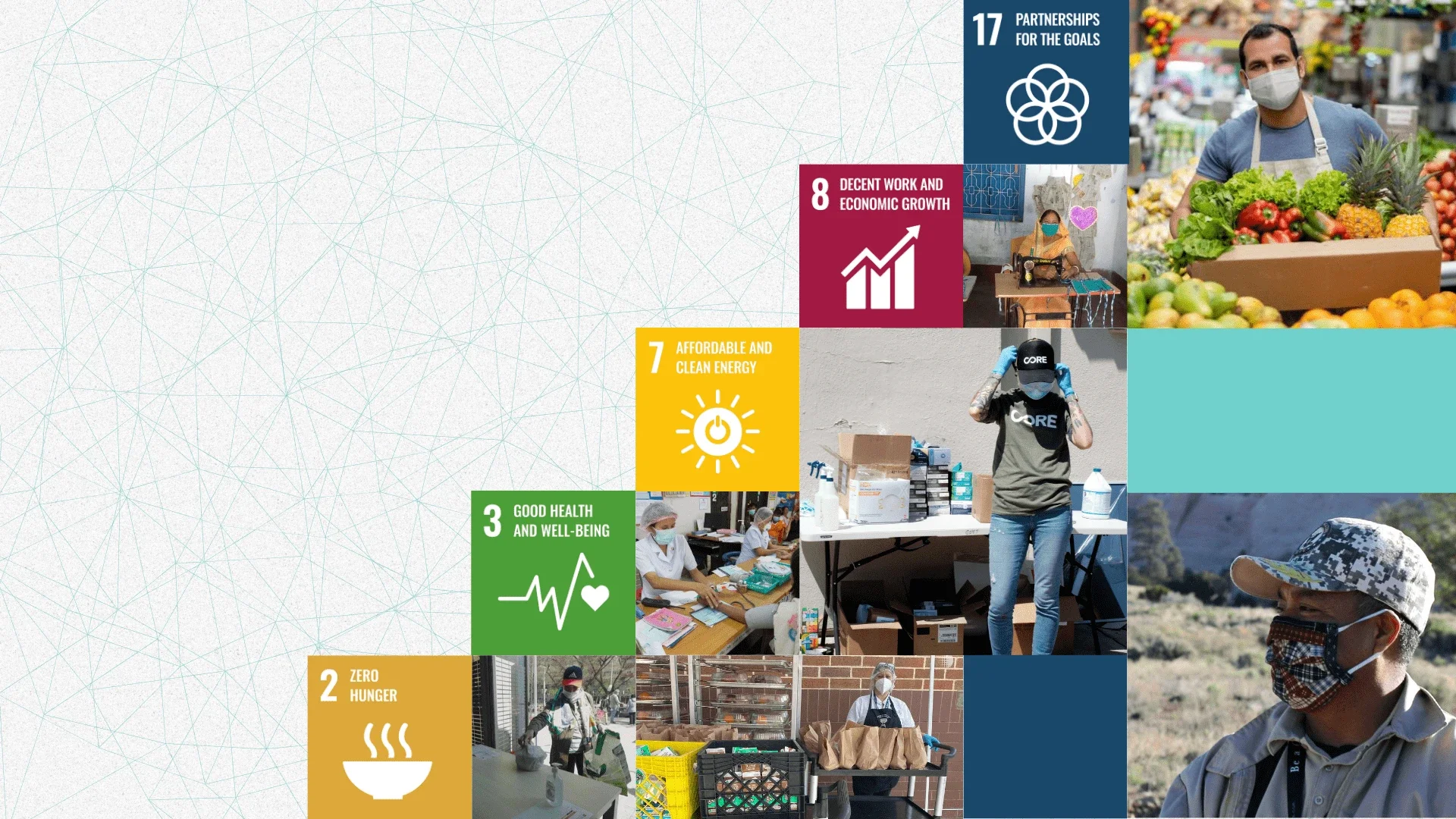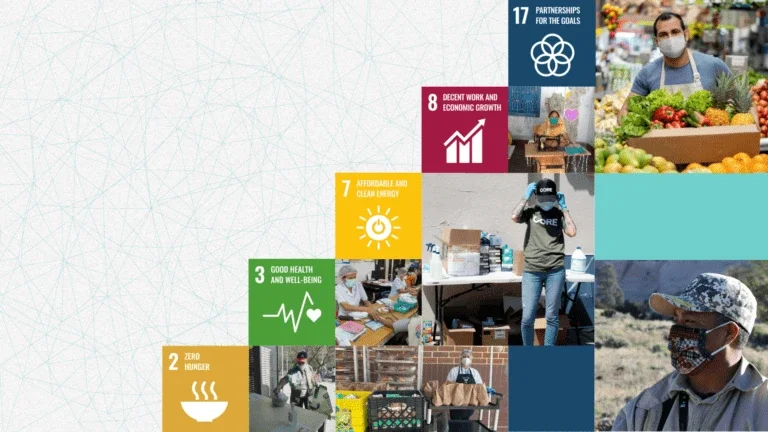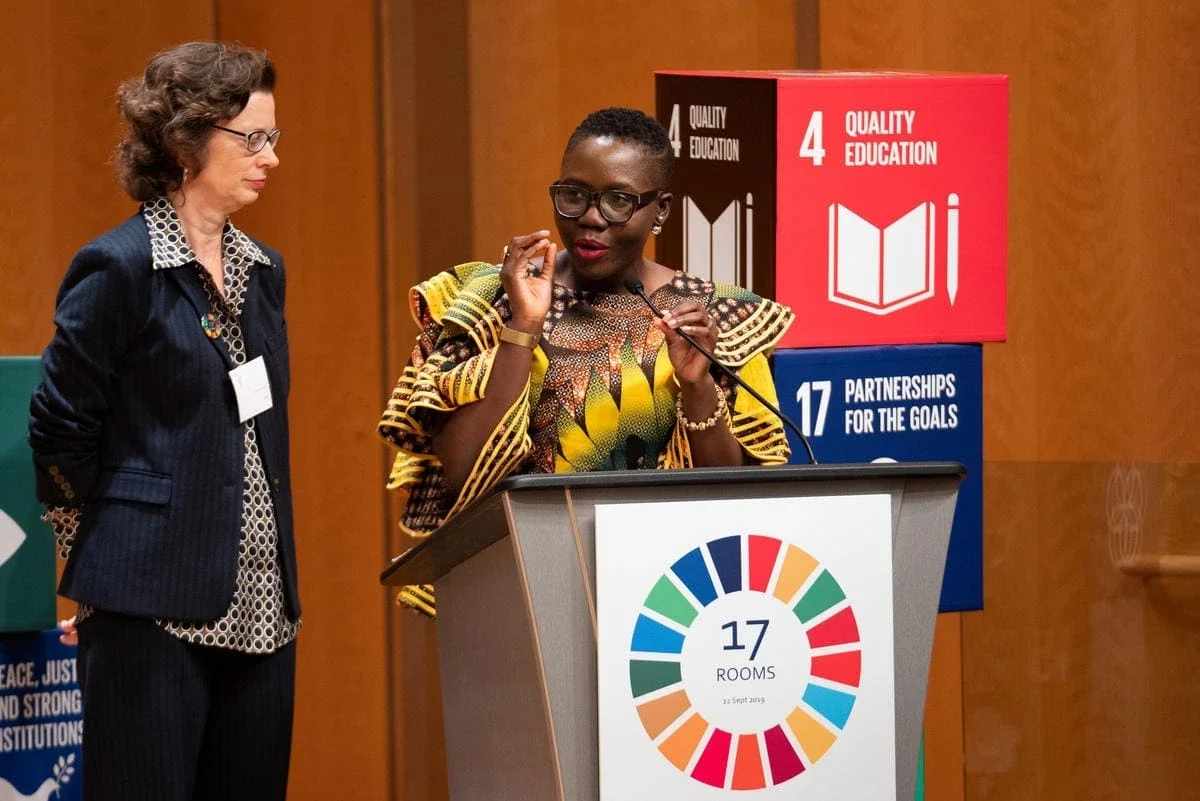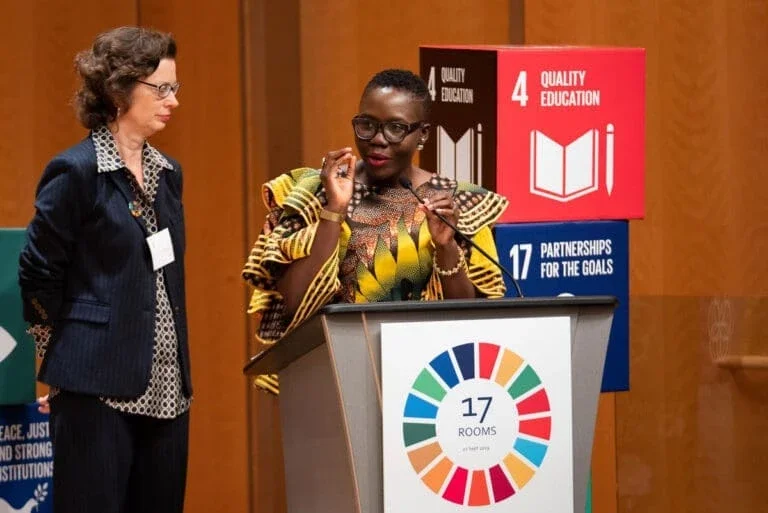In ordinary times, thousands of diplomats, aid groups, and development experts descend on New York every September to discuss pressing world concerns at the annual United Nations General Assembly (UNGA).
These are far from ordinary times, so amid the global disruption of the Covid-19 pandemic, the whole of UNGA went virtual. Among the most committed and energetic of convenings took place through the third edition of the 17 Rooms summit. The 17 Rooms initiative, a partnership between The Rockefeller Foundation and The Brookings Institution, designed a process that seeks to advance high-impact actions that can be taken over the next 12-18 months to improve Sustainable Development Goals (SDG) outcomes.
Too often, conversations at high-level gatherings like UNGA swirl around analysis of the overarching problems we’re facing, but without putting forward practical actions to address those problems. Grand speeches often overshadow proposals for distinct steps for progress. 17 Rooms seeks to go further, convening 17 disparate specialist communities within the same setting—this year via Zoom—and process to identify solutions to practical challenges for each and across all of the SDGs.
More than 200 experts from across multiple sectors – economists, scientists, philanthropists, academics, and leaders from the not-for profit, private and public sectors – gathered September 20 in informal groups to discuss and put forward practical steps to address the Covid-19 crisis and the compounding social and economic vulnerabilities it has exposed and exacerbated.
This year’s set of online gatherings sought to hit on one to three actionable priorities to address the Covid-19 pandemic and the many inequities it has worsened around the world, while remaining true to the SDGs 2030 goals.
We were fortunate to have United Nations Deputy Secretary General Amina Mohammed, who directly oversees the SDG process, attend this year’s 17 Rooms. Through her active participation, Mohammed carefully listened to what all the Rooms shared, and responded to the concrete ideas and proposals she heard with passion.
One highlight from this year’s gathering was the recognition that the SDGs matter and are more relevant than ever amidst the current crises our societies are facing, where the most vulnerable people have been hit the hardest.
Along with The Brookings Institution, The Rockefeller Foundation designed a careful process to help leaders committed to action define a course of action that is big enough to matter, but concrete and distinct enough to actually get done.
While it’s simple enough to convert an in-person meeting to a video conference, there is also the risk that momentum can get lost due to the alternative form of engagement. Acknowledging that risk, we committed to designing and orchestrating a dynamic virtual format that would maintain the attention of participants in order to catalyze concrete ideas to address the global crisis.
We experimented with a virtual approach blending plenaries, breakouts, and even random informal coffee chats. The process involved both focused within-Room discussions as well as various opportunities for participants to cross-pollinate by visiting other Rooms and brainstorming together on cross-cutting themes, another benefit of working on all SDGs simultaneously.
The turnout and palpable energy showed that while we are physically distant, people are eager to work together now more than ever. And 17 Rooms is built precisely for that. The process mobilizes a group of motivated changemakers and helps them come together, share, listen, learn and problem-solve together.
Despite the novel virtual format, Sunday’s ambitious agenda came off without a glitch. Participants seemed energized by the experience, avoiding the fatigue of standard Zoom calls and filling the need for more personal connection. Many were inspired by what they experienced and later reached out to explore how they could leverage this process in their own communities.
Look for a more detailed report on this year’s 17 Rooms outcomes in November.


Path to Equitable Recovery
The Rockefeller Foundation recognizes the potential to lose hard-fought progress on the SDGs because of this pandemic and is determined to join others during UNGA to prevent that from happening. Learn more about the work that we are doing with grantees and partners to help achieve the Global Goals.


17 Rooms
Convening 17 disparate specialist communities to identify – in parallel and in concert – high-impact actions that can be taken to improve SDG outcomes.